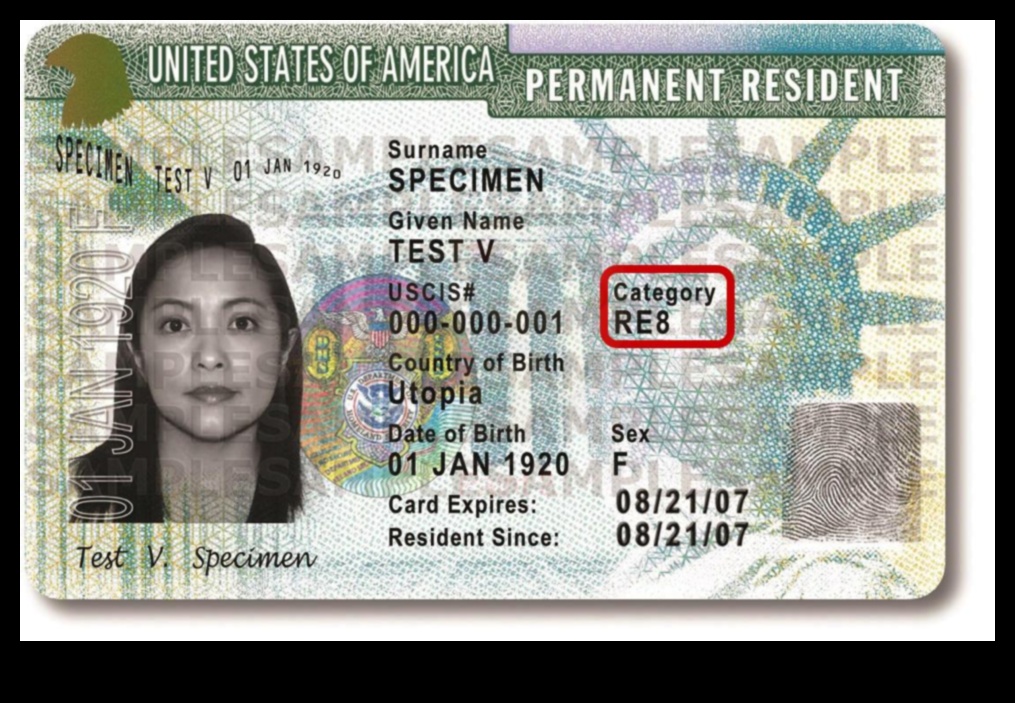
What is Class of Admission?
The class of admission is the year in which a student is admitted to college. It is typically used to refer to the freshman class, but can also refer to other classes of students, such as sophomores, juniors, or seniors.

How is the Class of Admission Determined?
The class of admission is determined by the date on which a student submits their application to a college. The earliest applications are typically considered for the fall semester, while the later applications are considered for the spring semester.
What are the Different Types of Classes of Admission?
There are three main types of classes of admission: early decision, early action, and regular decision.
- Early decision: Students who apply to a college early decision are making a binding commitment to attend that college if they are admitted.
- Early action: Students who apply to a college early action are not making a binding commitment to attend that college if they are admitted.
- Regular decision: Students who apply to a college regular decision are not making a binding commitment to attend that college if they are admitted.

What are the Benefits of Applying to a Higher Class of Admission?
There are a few benefits to applying to a higher class of admission.
- Students who apply early decision or early action are more likely to be admitted to a college than students who apply regular decision.
- Students who apply early decision or early action may be able to choose from a wider range of housing options.
- Students who apply early decision or early action may be able to get involved in more activities on campus.

What are the Disadvantages of Applying to a Higher Class of Admission?
There are a few disadvantages to applying to a higher class of admission.
- Students who apply early decision or early action are less likely to be able to change their minds about attending a college if they are admitted.
- Students who apply early decision or early action may have to pay a higher deposit if they are admitted.
- Students who apply early decision or early action may have to wait longer to find out if they are admitted.

How Can I Improve My Chances of Being Admitted to a Higher Class of Admission?
There are a few things you can do to improve your chances of being admitted to a higher class of admission.
- Have a strong academic record.
- Get good grades in challenging courses.
- Score well on standardized tests.
- Write a strong personal statement.
- Demonstrate your interest in the college.
What Happens if I Am Not Admitted to the Class of Admission I Wanted?
If you are not admitted to the class of admission you wanted, don’t give up. There are still plenty of other great colleges out there that would be happy to have you.
You can still apply to the college as a regular decision applicant. You can also consider transferring to the college after your first year of college.
What Resources Are Available to Help Me Choose the Right Class of Admission?
There are a few resources available to help you choose the right class of admission.
- Your high school counselor can provide you with advice on choosing the right class of admission.
- The college admissions office can provide you with information on the different classes of admission.
- There are a number of websites and books that can help you choose the right class of admission.
FAQ
Q: What is the difference between early decision and early action?
A: Early decision is a binding commitment to attend a college if
| Feature | Answer |
|---|---|
| Admission Class | The year in which a student is admitted to college |
| Class Rank | The order in which a student graduates from high school, based on their GPA |
| College Admissions | The process of applying to college and being accepted |
| Freshman Class | The first year of college |
| Incoming Class | The new students who are admitted to college each year |
I. What is the Class of Admission?
The class of admission is the year in which a student is admitted to college. For example, if a student is admitted to college in the fall of 2023, they are part of the class of 2027. The class of admission is often used to refer to the entire group of students who are admitted to college in a given year.
III. What are the Different Types of Classes of Admission?
There are three main types of classes of admission:
-
Early decision
-
Early action
-
Regular decision
Each type of class of admission has its own advantages and disadvantages, so it is important to carefully consider which one is right for you.
Early decision is a binding agreement that you will attend the college if you are admitted. This means that if you are admitted to a college early decision, you cannot accept any other offers of admission. Early decision is typically offered to students who are considered to be top candidates for admission. The deadline for early decision applications is typically in November or December.
Early action is a non-binding agreement that you will consider attending the college if you are admitted. This means that if you are admitted to a college early action, you are still free to accept other offers of admission. Early action is typically offered to students who are considered to be strong candidates for admission. The deadline for early action applications is typically in November or December.
Regular decision is the traditional admissions process. You can apply to any number of colleges and wait to hear back from them all at the same time. The deadline for regular decision applications is typically in January or February.
IV. What are the Benefits of Applying to a Higher Class of Admission?
There are a number of benefits to applying to a higher class of admission, including:
- You will be more likely to be accepted to the school of your choice.
- You will have more time to adjust to college life.
- You will have more opportunities to participate in extracurricular activities.
- You will have a better chance of getting the classes you want.
- You will be more likely to make friends with students who are in the same class as you.
V. What are the Disadvantages of Applying to a Higher Class of Admission?
There are a few disadvantages to applying to a higher class of admission. These include:
- You may be less likely to be admitted to the school of your choice.
- You may have to compete with a larger pool of applicants.
- You may have to pay a higher tuition rate.
- You may not be eligible for certain scholarships or financial aid opportunities.
It is important to weigh the pros and cons of applying to a higher class of admission before making a decision. If you are confident that you have the academic and extracurricular credentials to compete for a higher class of admission, then it may be worth the risk. However, if you are not sure if you are a competitive applicant, it may be better to apply to a lower class of admission where you are more likely to be admitted.
6. Conclusion
In this article, we have discussed the different aspects of class of admission. We have defined what it means to be admitted to a class, how the class of admission is determined, and what the different types of classes of admission are. We have also discussed the benefits and disadvantages of applying to a higher class of admission, and how you can improve your chances of being admitted to a higher class. Finally, we have provided resources to help you choose the right class of admission.
VII. What Happens if I Am Not Admitted to the Class of Admission I Wanted?
If you are not admitted to the class of admission you wanted, there are a few things you can do. First, you can appeal the decision. Each college has its own appeal process, so you will need to research the process for the college you are interested in. Typically, you will need to submit a letter explaining why you believe you should be admitted to the class of admission you wanted. You may also need to submit additional materials, such as transcripts, test scores, or letters of recommendation.
If your appeal is unsuccessful, you can still attend the college as a member of the class of admission you were admitted to. However, you may want to consider transferring to a different college after your first year. This is a big decision, so you should carefully weigh the pros and cons of transferring before making a decision.
Some of the factors you should consider when making this decision include:
- The cost of attending the college.
- The academic quality of the college.
- The social and cultural fit of the college.
- The location of the college.
If you decide to transfer, you will need to start the application process over again. This can be a time-consuming and stressful process, but it can be worth it if you find a college that is a better fit for you.
If you have any questions about the transfer process, you should contact the admissions office at the college you are interested in. They will be able to provide you with more information and help you make the best decision for your future.
What Resources Are Available to Help Me Choose the Right Class of Admission?
There are a number of resources available to help you choose the right class of admission. These include:
- Your high school guidance counselor
- The admissions office of the colleges you are considering
- College guidebooks and websites
- Online forums and discussion boards
Your high school guidance counselor can provide you with information about the different classes of admission at each college, as well as the criteria for admission to each class. They can also help you assess your academic and extracurricular qualifications to determine which class of admission you are most likely to be admitted to.
The admissions office of the colleges you are considering can also provide you with information about the different classes of admission. They can also tell you about the benefits and disadvantages of each class of admission, and help you make a decision about which class is right for you.
College guidebooks and websites can be a valuable resource for learning about the different classes of admission. They often include information about the criteria for admission to each class, as well as the benefits and disadvantages of each class.
Online forums and discussion boards can be a helpful way to connect with other students who are applying to college. You can ask questions about the different classes of admission, and get advice from students who have already been through the process.
By using these resources, you can make an informed decision about which class of admission is right for you.
IX. FAQ
This section answers some of the most common questions about class of admission.
What is the difference between class rank and class of admission?
Class rank is a measure of a student’s academic standing within their high school graduating class. Class of admission is a measure of a student’s academic standing within the incoming class at a college or university.
What are the benefits of applying to a higher class of admission?
There are a few benefits to applying to a higher class of admission. First, students who are admitted to a higher class of admission are more likely to receive scholarships and financial aid. Second, students who are admitted to a higher class of admission are more likely to be placed in honors classes and have access to more resources. Third, students who are admitted to a higher class of admission are more likely to graduate with honors.
What are the disadvantages of applying to a higher class of admission?
There are a few disadvantages to applying to a higher class of admission. First, students who are admitted to a higher class of admission are more likely to be competing with other students who have higher GPAs and test scores. Second, students who are admitted to a higher class of admission may be required to take more challenging courses. Third, students who are admitted to a higher class of admission may be more likely to experience academic stress.
How can I improve my chances of being admitted to a higher class of admission?
There are a few things you can do to improve your chances of being admitted to a higher class of admission. First, you should maintain a high GPA and score well on standardized tests. Second, you should get involved in extracurricular activities and show your commitment to your community. Third, you should write a strong personal statement that highlights your unique qualities and why you would be a good fit for the college or university.
What happens if I am not admitted to the class of admission I wanted?
If you are not admitted to the class of admission you wanted, don’t be discouraged. There are still many great options available to you. You can choose to reapply to the college or university next year, or you can explore other colleges and universities that may be a better fit for you.
What resources are available to help me choose the right class of admission?
There are a few resources available to help you choose the right class of admission. You can talk to your high school counselor, or you can research colleges and universities online. You can also read books and articles about college admissions.
Conclusion
Class of admission is an important factor to consider when applying to college. By understanding what class of admission is and how it is determined, you can make an informed decision about which colleges and universities to apply to.
What is Class of Admission?
How is the Class of Admission Determined?
What are the Different Types of Classes of Admission?
What are the Benefits of Applying to a Higher Class of Admission?
What are the Disadvantages of Applying to a Higher Class of Admission?
How Can I Improve My Chances of Being Admitted to a Higher Class of Admission?
Q: What is the difference between a class rank and a class of admission?
A: A class rank is a numerical ranking of students within a graduating class, while a class of admission is the year in which a student is admitted to college.
Q: What are the benefits of applying to a higher class of admission?
A: Students who are admitted to a higher class of admission may have more opportunities to participate in extracurricular activities, get involved in leadership positions, and receive more financial aid.
Q: What are the disadvantages of applying to a higher class of admission?
A: Students who are admitted to a higher class of admission may be more competitive for scholarships and financial aid, and they may have to take more challenging courses.